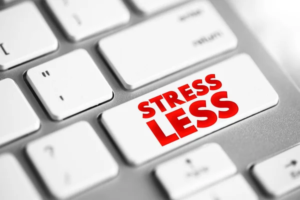
Chronic stress is becoming increasingly common in today’s fast-paced world. With the constant pressure to work, meet deadlines and maintain social relationships, many people have difficulty managing their stress levels. Unfortunately, chronic stress is more than just a temporary inconvenience. It can pose a serious threat to our health and well-being.
Chronic stress is a constant state of emotional, mental and physical tension caused by prolonged exposure to stressful situations. When the body is stressed, it initiates a complex response system known as the fight-or-flight response. This response is intended to prepare the body for immediate action by releasing stress hormones such as cortisol and adrenaline. However, if the body is exposed to stress for a long period of time, it can become stuck in this state of heightened arousal, which can lead to a number of negative consequences.
One of the main reasons why chronic stress is so dangerous is that it can damage the body at the cellular level. Research has shown that chronic stress can cause inflammation, which can damage DNA and weaken the immune system. This, in turn, can increase the risk of chronic diseases such as heart disease, diabetes and cancer.
Chronic stress can also negatively impact mental health. Constant stress leads to anxiety, depression and other emotional disorders. This is because the stress response system can disrupt the balance of neurotransmitters in the brain, which can affect our mood, behavior and emotions.
Furthermore, chronic stress also affects cognitive function. When the brain is exposed to stress hormones for a long time, memory, learning, concentration and decision-making are affected. This can have a significant impact on work productivity, relationships and overall quality of life.
In short, chronic stress is a dangerous condition that has negative consequences for both physical and mental health. That’s why it’s important to take steps to manage stress effectively: exercise, relaxation techniques such as meditation or yoga, and seeking support from loved ones or mental health professionals. By doing this, we can reduce the risk of developing chronic stress and promote better health and well-being.
Take care of yourself!